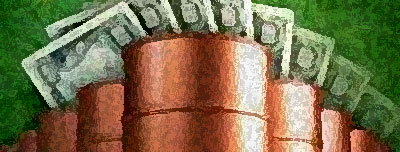
Why did the Pahlavi regime fall? Theories are out there aplenty. Was Khomeini too tough? Were the Iranian people simply too unhappy with the regime? I don’t think so. Let’s have a different look!
We know where Iran was around the time of the Islamic revolution. Much of the Iranian diaspora longs for those days. They consider the last years of the Pahlavi rule as Iran’s best time ever. I have never been truly nice about the Pahlavi regime, but I must acknowledge the reality, that both during Reza Shah, and also Mohammad Reza Shah, Iran saw its greatest modernisation process in its modern times (not talking about thousands of years ago). Iran became an economic power-house in the region, and amazingly, Asians (even some Japanese) were coming to work in Iran, though not really in great numbers. Ever since the revolution Iranian workers, and managers, have been flooding many Asian (also non-Asian) countries.
The reason, the real reason, times were good (for some) during Mohammad Reza Pahlavi can be explained with two words: ‘oil’ and ‘foreigners’. Iran sold its crude oil to foreigners, and with the money paid some of the same, and other, foreigners to invest in Iran. The money they made from selling crude oil during the 70s was truly significant compared to Iran’s population back then. Beside this there was also the economically sound policy of giving the foreigners the right and the possibility to take advantage of Iran’s oil revenues and create businesses. The government did some investments of its own too, using the oil revenue building schools, roads etc, therefore greatly contributing to the whole national development. Government employees were also paid quite well, and all these investments had started to create something that Iran had never known before the Pahlavi, a ‘middle class’. The middle class could afford a good life without being powerful cronies, traditional landlords, or lucky or shrewed, linked or not, business people. This middle class, unfortunately, never got the chance to get big enough. The Islamic revolution put an end to the trend.
Times were not so great for many other Iranians during the Pahlavi. Most Iranians were left behind most of the real benefits of that huge prosperity. However, surprisingly, it was not really the poorest of Iranians who brought down the Pahlavi regime. Those who brought down the Pahlavi regime were not the richest, but they were not the poorest either. The poorest used to live (they still do) in villages and there were also smaller numbers near large cities. The revolution though succeeded thanks to the heavy participation of the urban population. The truly poor, most of the rural population, had much less an impact over the Islamic revolution.
Could have we expected the Pahlavi regime to create a ‘just’ or ‘uniform’ society, at least from a financial point of view, just from the beginning of their endeavour toward modernisation? That would have been impractical. The heavy modernisation should have started somewhere, and just like almost anywhere else in the world, it started in large cities. Some modernisation also took place in farther, and smaller, areas too, through schools and administrative posts. And of course, let’s not forget the statues of the shah (the father or the son, depending whose time it was) that was supposed to be among the first of the industrial plantations, just to sign the territory for all to see, as any ‘respectable’ owner does (sign his/her territory).
The reason the Pahlavi regime fell is because the Shah wanted to be a dictator, but not-a-dictator at the same time. He was too civilised (Swiss school, foreign languages etc) for a Middle-Eastern tyrant, and too ignorant and naive for a Western leader. He was unable to kill and massacre like a Middle-Eastern strongman, but he was also unable to overcome his personal weaknesses; his utter desire for power, easy life and cosy admiration. His father was a Middle-Eastern strongman. The strongman brought up the best heir any Middle-Eastern tyrant could wish for (Western schools, manners etc) though he was probably deposed too early, before having taught his son the nasty, somehow less civilised, parts of ruling over a Middle-Eastern dominion. The father should have probably prepared a strong and devoted entourage (not leaving that for the son), and also a truly tough and ruthless security apparatus before handing over the throne. But Reza Shah didn’t have the chance, the time. He was surprised, over-thrown so hastily. He left the job unfinished. The son proved to be too civilised, too weak, too Western, not enough Eastern, and not so smart to do things on his own.
This is all history, but history is important. Coming to terms with history is very important for any nation. Khomeini was a huge leader, a worldly figure, but it was not Khomeini’s powers and popular charisma that brought down the shah, it was the Mohammad Reza Aryamehr regime’s incompetence and naivete that caused its downfall. Carter’s simple-mindedness may have helped too, but Carter wasn’t ruling Iran, Mohammad Reza was.�






